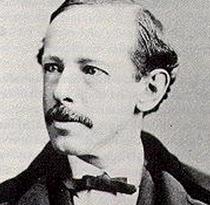
From a career perspective, my personal journey has spanned from my first part-time job as a seasonal salesclerk, continued along the politically treacherous highways of the corporate workplace—culminating as Vice President at a Fortune 500 bank—and taken a sharp turn onto the path of self-employment.
Along the way, I’ve learned several key principles that helped shape my personal career success. In this season of sharing, I thought I’d pass them on.
Key Personal Principle One: Live with integrity—the world is watching.
 In this age of instant headlines, the ethical missteps of well-known people are only a click away (think Tiger Woods). After observing the transgressions of a few business leaders, politicians, and entertainers, it’s easy for a cynical public to suspect that every powerful person is untrustworthy.
In this age of instant headlines, the ethical missteps of well-known people are only a click away (think Tiger Woods). After observing the transgressions of a few business leaders, politicians, and entertainers, it’s easy for a cynical public to suspect that every powerful person is untrustworthy.
What can you do to change that outlook? Consider this: if the behavior of a small group of scoundrels can cast suspicion on the integrity of an entire nation, then the actions of a small number of morally strong individuals will help restore the public’s faith that people are generally good. By living with integrity, you’ll help stem the tide of disreputable behavior, and you’ll assure those around you that there are still principled people in the world.
Key Personal Principle Two: Set your standards high, and measure yourself to your standards.
 While a young aid to Henry Kissinger, Winston Lord presented the Secretary of State with a foreign policy report. Kissinger summoned Lord to his office the following day and, referring to the report, asked, “Is this the best you can do?” A dejected Lord took back the report and promised to try again. A few days later, Lord turned in a revision. Once again, Kissinger called him into his office and inquired, “Is this the best you can do?” This routine—Lord submitting revised drafts and Kissinger asking him if he could do better—went on for several more days. Finally, on the ninth try, Lord insisted that he could not possibly do any better. “In that case,” Kissinger informed him, “now I’ll read it.”
While a young aid to Henry Kissinger, Winston Lord presented the Secretary of State with a foreign policy report. Kissinger summoned Lord to his office the following day and, referring to the report, asked, “Is this the best you can do?” A dejected Lord took back the report and promised to try again. A few days later, Lord turned in a revision. Once again, Kissinger called him into his office and inquired, “Is this the best you can do?” This routine—Lord submitting revised drafts and Kissinger asking him if he could do better—went on for several more days. Finally, on the ninth try, Lord insisted that he could not possibly do any better. “In that case,” Kissinger informed him, “now I’ll read it.”
As that story illustrates, each of us is the best judge of our own ability. Therefore, set your standards high and be your own critic. Others will eagerly evaluate your efforts, but only you will know whether you gave it your all. If you did, enjoy the satisfaction of knowing that you did your very best.
Key Personal Principle Three: Live within your means, and behold how your means will grow.
 When we were newlyweds just entering the professional world, my wife and I struggled to earn more than we spent. Once we impulsively purchased a new stereo system on store credit. I don’t remember the exact cost—a few hundred dollars at most—or the amount of the monthly installments. But I do remember our restless night as we contemplated the additional burden on our budget. We vowed to pay off the stereo as quickly as possible and to forgo purchasing luxury items until we could pay for them with cash. From that day on, our only purchases with borrowed funds were cars and our home. If we wanted to buy something, such as a new television, we simply saved for it. It wasn’t always easy, but as Ben Franklin advised, “Rather go to bed supperless than rise in debt.”
When we were newlyweds just entering the professional world, my wife and I struggled to earn more than we spent. Once we impulsively purchased a new stereo system on store credit. I don’t remember the exact cost—a few hundred dollars at most—or the amount of the monthly installments. But I do remember our restless night as we contemplated the additional burden on our budget. We vowed to pay off the stereo as quickly as possible and to forgo purchasing luxury items until we could pay for them with cash. From that day on, our only purchases with borrowed funds were cars and our home. If we wanted to buy something, such as a new television, we simply saved for it. It wasn’t always easy, but as Ben Franklin advised, “Rather go to bed supperless than rise in debt.”
By living within our means in this manner, we developed the habit of saving money. And before we knew it, our means had grown. As it turns out, we were doing more than setting aside money to purchase fun things; we were acquiring wealth.
Key Personal Principle Four: Give something back.
 In his book, Anyway: The Paradoxical Commandments, Kent Keith writes, “If you do good, people will accuse you of selfish ulterior motives. Do good anyway.” To be sure, it’s no longer sufficient for well-meaning people to do good deeds; cynics expect them to prove that their intentions are noble.
In his book, Anyway: The Paradoxical Commandments, Kent Keith writes, “If you do good, people will accuse you of selfish ulterior motives. Do good anyway.” To be sure, it’s no longer sufficient for well-meaning people to do good deeds; cynics expect them to prove that their intentions are noble.
In Horatio Alger’s Ragged Dick, the story’s hero gives away five dollars to help a friend whose mother broke her arm in a fall. The author describes the meaningful nature of giving back:
Dick walked away, feeling the self-approval which always accompanies a generous and disinterested action…He felt that his money was well bestowed, and would save an entire family from privation and discomfort.”
Although the gift was a personal hardship to Ragged Dick, he “felt fully repaid for what he had done.” I can think of no better description of how it feels to help people in need, or any better definition of success.
Key Personal Principle Five: Never stop learning
 I’ve always described myself as “self-made.” It was my way of hiding my embarrassment of not having a four-year college degree. Armed with an Associate Degree, most of the career skills I needed I learned on the job. And I was a clever self-learner: recognizing that, in business, knowledge is power, I scouted for holes in the company’s competency base—important skills that my co-workers lacked—and I taught myself to be the expert in those areas.
I’ve always described myself as “self-made.” It was my way of hiding my embarrassment of not having a four-year college degree. Armed with an Associate Degree, most of the career skills I needed I learned on the job. And I was a clever self-learner: recognizing that, in business, knowledge is power, I scouted for holes in the company’s competency base—important skills that my co-workers lacked—and I taught myself to be the expert in those areas.
Since starting my company seven years ago, I’ve taught myself how to conduct workshops, how to be a public speaker, how to write and publish a book, and how to market my business. And I think I’ve had a pretty good teacher.
Now in my fifth decade, I’ve gone back to college to finish where I left off twenty-five years ago. I’ve earned my Bachelor’s degree and I’m halfway to a Masters in Organizational Leadership. Why bother at this stage in my career? The proverb says, “Ignorance is bliss,” meaning that not knowing something is often better than knowing it. But to me, the bliss of ignorance lies in the endless opportunity to learn what I don’t know. And for that reason, I’ll never stop learning.
What secrets of your success are you willing to share?
Add to: Facebook | Digg | Del.icio.us | Stumbleupon | Reddit | Blinklist | Twitter | Technorati | Yahoo Buzz | Newsvine
————————————————-
George Brymer is author of Vital Integrities and the creator of The Leading from the Heart Workshop®.
He can be reached at [email protected]
Image Sources: muscle-fitness-tips.net, timesonline.co.uk, camo.ch, images.publicradio.org, arcamax.com, mecha3dprojects.com

[…] This post was mentioned on Twitter by Dale Lawrence and Tom Schulte, JoAnne Casterlin. JoAnne Casterlin said: RT @tomschulte: Five Key Principles for Personal Success @ http://linked2leadership.com/2009/12/16/five-principles-for-success […]
One more point I believe is to judge your success based on your own efforts rather than comparing yourself to others. It is easier to become successful in other people’s eye but being successful in your own eye is real success.
[…] the whole article here Five Key Principles for Personal Success Filed in Leadership 0 comments No comments yet. […]
Social comments and analytics for this post…
This post was mentioned on Twitter by eaglesflite: Five Key Principles for Personal Success via Linked 2 Leadership http://ow.ly/MDaj…